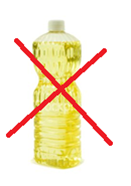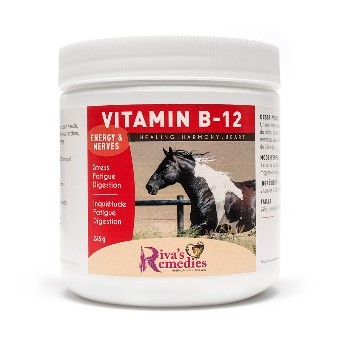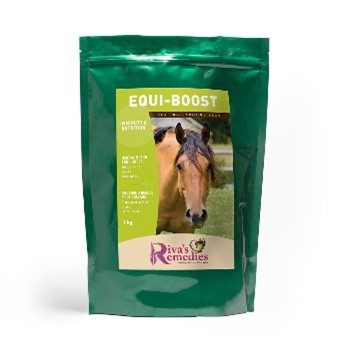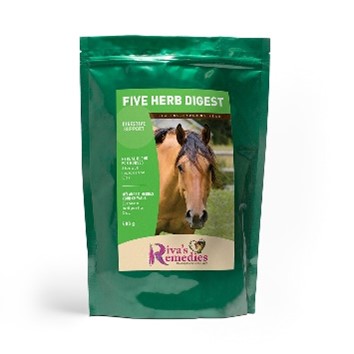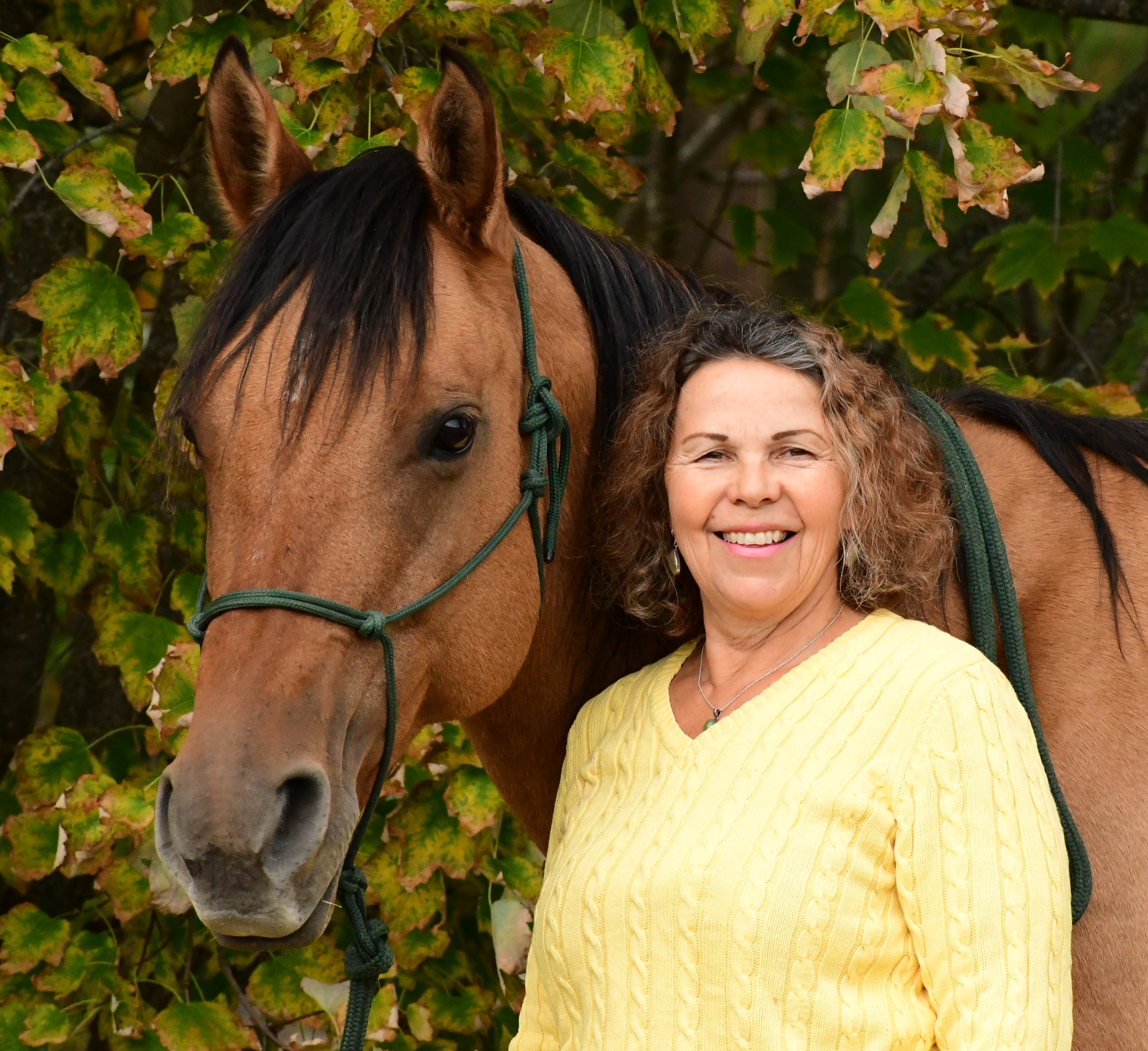Helping Horses Gain Weight
Underweight horses can be a challenge for us, especially with our beloved seniors. And we often find ourselves feeling at a loss of what we can do for them. Weight loss can happen to all ages and all breeds of horses leaving us feeling bewildered as to what caused it. But weight loss can be due to a variety of different problems and once we identify the issue there are a number of different options to get their weight back.
Let’s take a look at all of the different scenarios and see which one applies to your horse.
DietThe most common reason for weight loss in almost all horses is an unsuitable feed program. Feeding an effective diet is more complicated than you think, and we can no longer rely on just hay and a salt block as a complete nutritional program. Dietary factors must include:
|
|
The Importance of Fibre & Forage
The first step in promoting weight gain for underweight horses is to ensure adequate fibre levels in their diet. Fibre is the single most important food group in a horse’s diet.
Here’s why:
Horses acquire over 75% of their energy used for weight gain or for energy from fibre, not from protein, sugars, or fats. Horses are anatomically designed to ferment fibre in the hindgut through the activity of the microflora (probiotics) and convert it into volatile fatty acids which are used for energy by the cells. Fibre is found in hay, grain, and grain alternatives such as beet pulp or brans, but mostly horses acquire fibre from hay and forage.
How Much Fibre Should Horses Have In Their Hay?
The fibre in hay is measured as the ADF (acid detergent fibre) and NDF (neutral detergent fibre). Ideally the ADF should be less than 40% and the NDF less than 50% but the average hay measures ADF between 34-44% and an NDF between 56-70%.
But more fibre is not necessarily beneficial. If fibre levels are too high the hay becomes less digestible. And the less digestible the hay is the more of it they have to eat to satisfy their nutritional and energy requirements. And because hay types can really vary it is not always possible to predict exactly how much hay each horse has to eat. Therefore, it is a good practice to make hay available to horses 24/7 so they can choose for themselves how much they need to eat each day of the particular hay they are being fed. Even horses on grass need extra hay because grass is very low in fibre. That is one of the reasons why grass is a problem for so many horses, particularly metabolic horses, because fibre slows down sugar absorption.
There comes a point though where hay may be just too mature or too coarse to help an underweight or unwell horse and a better-quality, more digestible hay needs to be fed.
Lignin Levels in Hay
You will also want to ensure that the lignin levels are within range. Lignin is an insoluble fibre found in the cell wall portions of the plant and is not very digestible. The average lignin level should be between 5-8%. However, some hay, such as more mature hay or most alfalfa for example, contains higher than 8% making it harder for horses to digest or to extract enough energy to gain any weight. But, as we shall see, alfalfa is useful for increasing protein in those horses who are deficient.
More Fibre For Horses
In addition to hay, there are other beneficial sources of fibre that you can add to the mash.
|
|
1.
Beet
pulp
is an excellent source
of crude fibre (18%) and contains both insoluble and soluble fibre which is
mostly composed of hemicellulose and pectin. These types of fibre are easily
digested and fermented in the hindgut where horses produce over 75% of their
energy. Beet pulp is now available as non-GMO and free of molasses.
|
||
|
|
2.
Whole
oats
are 12% fibre, and the hulls contain 30% of the total fibre, therefore
whole oats have more fibre overall than flatted or crushed oats. Always cook
the oats first. Feeding cooked oats makes it more digestible, is suitable for
metabolic horses, and prevents hindgut toxicity due to the over-fermentation of
starches.
|
||
|
|
3.
Wheat bran is a good source of fibre, up to 10%,
as well as phosphorus. It is
highly palatable, and horses really like the taste and the smell of it. A wheat
bran mash is very useful for horses with dental challenges and makes an
excellent vehicle for adding herbs and supplements. Use it to add bulk to the
stool, detoxify the hindgut, and promote regular bowel movements.
|
||
|
|
4.
Rice
bran
is a combination of high fibre as well as fat. Rice bran is the outer
brown layer of the kernel and contains 8-10% insoluble fibre. Rice bran is also
14% protein and high in fat at 20% so feed with caution and not for indefinite
periods of time. However, the combination of protein and fat results in a low
glycemic response making it useful for underweight horses who are sugar
sensitive. Ensure that the rice bran is
stabilized to prevent rancidity.
|
||
|
|
5.
Seeds.
Flax seeds, hemp seeds, and chia seeds are all good sources of fibre but
more importantly they provide essential fatty acids (EFA’s). EFA’s reduce
inflammation, provide nutrition for the immune system, and help to balance
hormones. They can also be a source of energy.
|
The Benefits of Protein for Underweight Horses
Protein sources such as alfalfa hay cubes, alfalfa-timothy hay cubes, and alfalfa pellets can be beneficial for skinny horses particularly in cases of protein deficiencies due to poor absorption, poor protein metabolism, or periods of deprivation. Alfalfa can also help to increase calories so long as they are getting fed enough fibre. Extra protein can be important for some underweight horses, but straight alfalfa diets should be avoided. It is the fibre which is the most important food group; protein should be considered a secondary feed for underweight horses, except for those horses who are protein deficient.
|
Senior horses
and horses without teeth also do well on soaked hay cubes. Most senior horses will
tolerate alfalfa cubes which are a good source of protein, but alfalfa-timothy
or straight timothy cubes can be a digestive problem for some horses due to the
binders used in manufacturing. Always soak the alfalfa cubes before feeding.
|

|
Can Extruded Feeds Help?Extruded feed contains grains that have been processed with heat and pressure for high digestibility. Therefore, they can be very beneficial for some horses, especially horses who are mal-nourished or have digestive and absorption problems. Choose a good quality extruded feed with healthier ingredients. But only use temporarily for as long as needed to regain some of the weight. Many horses experience adverse reactions with the long-term or excessive use of commercial feeds. |
|
What About Probiotics for Weight Gain?
Probiotics, or friendly bacteria, can be extremely beneficial for underweight horses. Horses have billions of units of probiotics in the hindgut, so a healthy population of probiotics is necessary to support optimum levels of fermentation in the hindgut to help convert fibre into energy. Probiotics can help with nutrient absorption, promote a healthy intestinal immune system, discourage unfriendly strains of yeast and bacteria, and improve appetite.
Probiotics should be supplemented for 6-8 weeks as required, or twice per year to restore adequate levels. Always use pre and probiotics which require refrigeration since these probiotics have maximum potency. See below for more information.
Foods That Underweight Horses Should Avoid
1) High Glycemic Feeds
In an attempt
to promote weight-gain for skinny horses, many horse people often Grains to avoid:
|
2) Fats & Oils
Vegetable oils
are another popular source of calories that are commonly fed to The following oils are inexpensive, unstable polyunsaturated oils often used in commercial feed. They are a major cause of known health problems. Most of these are sourced from GMO crops which is also a risk factor for maintaining overall good health.
|
Exercise
Horse owners are often reluctant to exercise under-weight horses thinking that they are too fragile. But it is important to understand that exercise benefits all horses, no matter the age, breed, health condition, or body score.
Exercise promotes a healthy appetite, makes the digestion more efficient, enables nutrient absorption, builds a stronger immune system, alleviates depression, and lowers stress levels, also a major cause of weight loss. It also helps to build muscle mass and muscle strength which helps with weight gain by regulating metabolism.
You can adjust the exercise program to fit the health or the mobility of the horse. To encourage more natural movement, you can create several different feeding stations by hanging or placing slow feeders everywhere. This will encourage them to walk all day. You can also set up a paddock paradise with a track system.
And spend time with them to hand-walk or trot them, pony them behind other horses, play with them at liberty, and give them lots of space to move around on their own.
The Weight Gain Checklist
✔ Provide free choice hay. Underweight horses should never run out of food, whether the hay is fed free- choice or in slow feeders. Some people do both.
✔ Make sure they get enough to eat. If your horse is at the bottom of the herd hierarchy and being pushed off the hay piles, change the herd dynamic or add more feeding stations. Ensure that your horses have access to as much food as they require.
✔ Check those teeth . Misalignment of teeth due to sharp edges or ramps, missing teeth, abscesses, pain, sore gums, and jaw bones problems including TMJ. Dental problems affect the appetite, the ability to chew and swallow, and the first stages of digestion.
✔ Assess your horses for ulcers. Ulcers and digestive problems can affect their appetite or their ability to digest nutrients. Try to resolve ulcers naturally and don’t use anti-ulcer medications long-term. Proton pump inhibitors (anti-ulcer meds) depress hydrochloric acid (HCL) levels which is how horses digest their proteins. In addition, it can take a very long time for the HCL production to recover after the drugs have been discontinued. Medications for Cushing’s disease (PPID) can also depress the appetite.
✔ Treat for a leaky gut if present. Leaky gut is caused by the over-fermentation of starches and sugars in the hindgut which results in intestinal gas, heat, toxins, and acids and auto-intoxication. Leaky gut contributes to many health problems including weight loss, ulcers, diarrhea, and laminitis. Check out our blog on Understanding Leaky Gut to learn more.
✔ Do regular fecal testing for parasites. Parasites can interfere with nutrient absorption, deplete vitamins and minerals, cause anemia, or spread toxicity throughout the body; all of which can result in weight loss.
✔ Give your horses freedom and a stress-free life. Never house any horses, underweight or not, in a stall or small paddock. This is an unnatural, disease-causing, highly stressful existence for ALL horses; horses need freedom to move, they need friends, and they need forage.
Important Supplements
Nutrient deficiencies can easily prevent a horse from gaining weight and can also cause weight loss. Supplements help with appetite, digestion, nutrient absorption, and the intestinal immune system. Here are our top four selections to support the underweight horse.
|
|
Pro-Colon – ¼ tsp daily for 6-8 weeks, and twice per year
for maintenance.
Pro-Colon is a pre and probiotic blend to improve fibre digestion, balance the microbiome, and maintain nutrient absorption. It supports the intestinal immune system and aids leaky gut. |
|
|
Vitamin B12 – 1-2 tsp daily (= 6,000 – 12,000 mcg) Vitamin B12 stimulates the appetite, supports digestion, improves energy, and helps with liver detoxification. It is an important stress nutrient and supports mental wellness in nervous or senior horses. |
|
|
Equi-Immune herbal blend – 2 Tbsp daily (A proprietary blend of astragalus, fennel, milk thistle, rosehips, and spirulina)These herbs support the liver and a healthy digestive system. Equi-Immune helps to maintain immune function and vitality. It promotes detoxification and is an excellent blend for the recovery of general health. |
|
|
Five Herb Digest herbal blend – ¼ cup daily (A proprietary blend of caraway, catnip, fennel, fenugreek, and peppermint leaf)This blend helps to support optimum digestion and healthy absorption. Eases bloating, indigestion, and soothes a nervous or acid stomach. |
The Right Recipe
Every horse is unique, and diet, nutrition, supplements, and exercise programs have to be carefully considered to ensure a good fit for a horse’s individual health history, lifestyle, and current situation.
However, the main ingredients for success are the same for every horse. Adequate calories, digestible fibre, enough protein, free choice hay or slow feeders, exercise, and a reduction in stress levels. In this way all horses can regain their health, feel better than they ever have before, and restore their fitness levels.
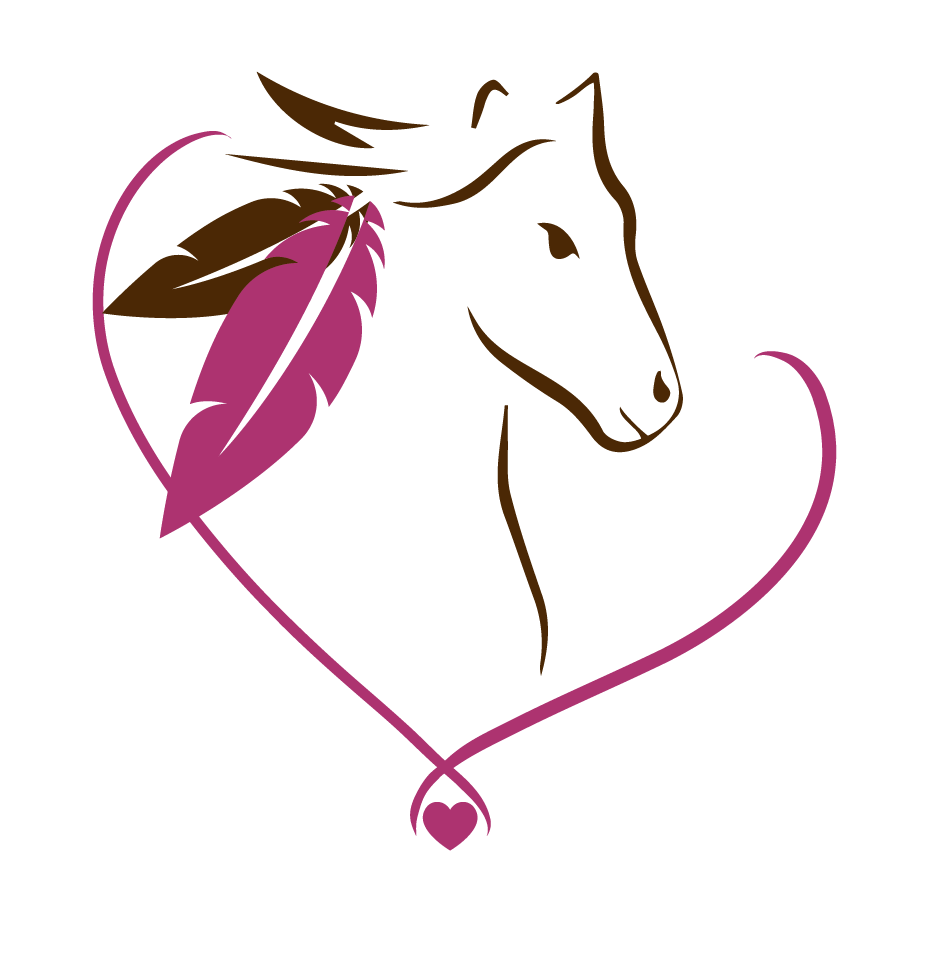
|
Equine Health & Nutrition Specialist
Marijke is a life-long horse lover, the author of the best-selling Healing Horses Their Way, and the founder, formulator, and CEO of Riva’s Remedies. She is a gifted healer who helps horses, and their people, from around the world live happier, healthier lives. |

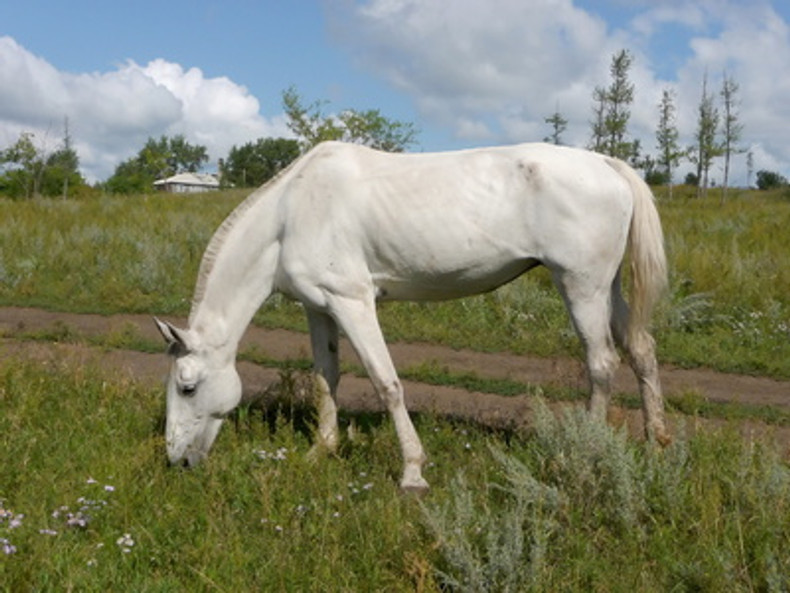
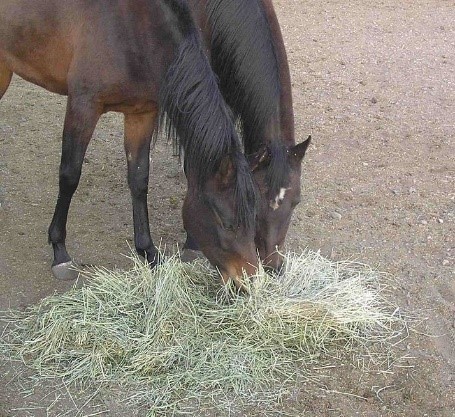


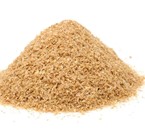



 add more grains
to the diet to increase calories. However, high-glycemic, high-starch foods should
not be considered as an effective dietary strategy for underweight horses. Sugars
and starches are risk factors for several health problems including
inflammation, laminitis, digestive problems, ulcers, leaky gut, and Equine
Metabolic Syndrome (EMS) including Insulin Resistance (IR), EPSM, and Cushing’s
disease.
add more grains
to the diet to increase calories. However, high-glycemic, high-starch foods should
not be considered as an effective dietary strategy for underweight horses. Sugars
and starches are risk factors for several health problems including
inflammation, laminitis, digestive problems, ulcers, leaky gut, and Equine
Metabolic Syndrome (EMS) including Insulin Resistance (IR), EPSM, and Cushing’s
disease.
